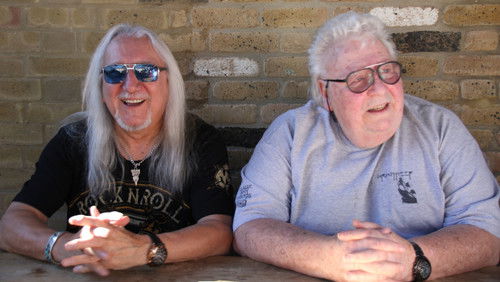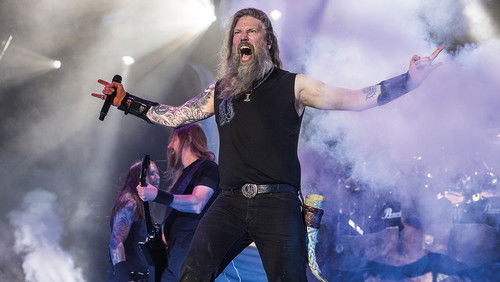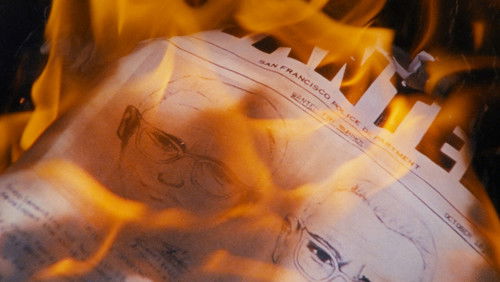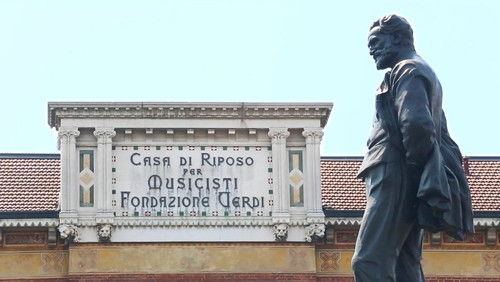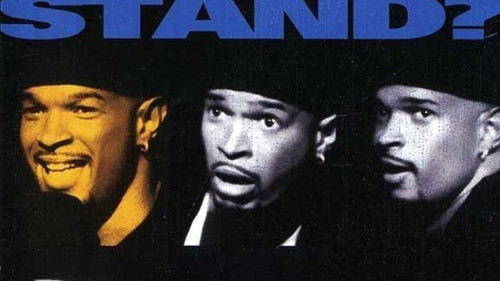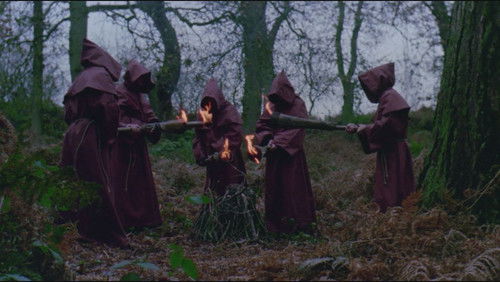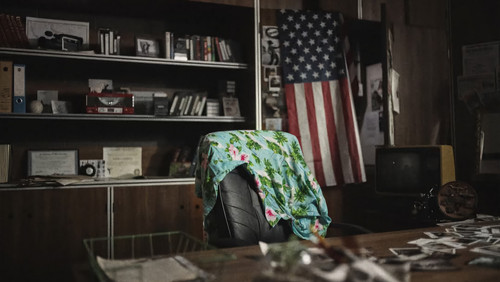Alla ricerca di Tadzio (TV Movie 1970)
68KAlla ricerca di Tadzio: Directed by Luchino Visconti. With Björn Andrésen, Sergio Garfagnoli, Luchino Visconti. Documentary on Luchino Visconti’s travels and auditions in search for a young actor to portray the role of Tadzio in his adaptation of Thomas Mann’s novella “Death in Venice
“Viscontiu0026#39;s credit as director of this short documentary is a misstatement. There isnu0026#39;t a trace of Viscontiu0026#39;s elaborate artistry here and heu0026#39;s obviously not directing anything; what we see are making-of-ish images of Visconti looking grave, tired and slightly bored as he travels around Europe (Munich, Budapest, Warsaw, Venice, Helsinki and Stockholm) with a small crew in the winter of 1970, looking for a 12-year-old boy to play the emblematic role of Tadzio in his adaptation of Thomas Mannu0026#39;s novella u0026quot;Death in Veniceu0026quot;. Visually unpolished (to put it nicely), u0026quot;Alla Ricerca di Tadziou0026quot; plays like a TV newsreel, with a voice-over commentary full of grandiloquent remarks on Viscontiu0026#39;s oeuvre and excerpts of Mannu0026#39;s physical description of Tadzio. The commentary is at odds with the images: the pompous words donu0026#39;t match the improvised auditions in small hotel rooms with self-conscious, inexperienced young boys, most of them bluntly dismissed by Visconti with a grunt, a few of them earning u0026quot;complimentsu0026quot; like u0026quot;hmm, yes, pretty faceu0026quot;. u003cbr/u003eu003cbr/u003eEspecially ludicrous is Viscontiu0026#39;s disappointment with Polish boys (remember Tadzio was Polish in the novella — and in real life). Unable to find in Warsaw the Greek/Nordic living statue he is searching for — described by Mann as the 12-year-old owner of graceful body, golden hair framing a noble head with blue eyes, straight nose, majestic presence, a sort of preteen reincarnation of Antinous — he blames the demise of Polish aristocracy through successive periods of war in Poland for the rather u0026quot;proletarianu0026quot; appearance of the young Poles: a VERY politically-incorrect comment by that walking paradox Visconti (a Marxist aristocrat!)u003cbr/u003eu003cbr/u003eViscontiu0026#39;s insistence on a Tadzio that would perfectly match Mannu0026#39;s description seems rather obnoxious: if he took significant liberties with Gustav von Aschenbach and the novella itself (not only by making Aschenbach a composer instead of writer, but also by borrowing passages and characters from Doktor Faustus, especially Carole Andréu0026#39;s Esmeralda), why was he so particular about Tadziou0026#39;s physique?u003cbr/u003eu003cbr/u003eWell, it turned out he couldnu0026#39;t be THAT particular after all, because in a Stockholm hotel suite a miracle happens: enter Björn Andrésen for an audition and itu0026#39;s like the midnight sun broke into the chilly room. Unmistakably Scandinavian in his perfect blond beauty, chiseled features, long limbs and gazelle-like grace, heu0026#39;s older than Tadzio by two or three years, taller than expected and hasnu0026#39;t REMOTELY got a Mittel-European physique. Yet, his audition is nothing short of spectacular: he faces — well, nearly melts — the camera with such bold, precocious sexiness and complete self-confidence you can feel the room temperature rise; heu0026#39;s a natural, born to be stared at. Visconti realizes heu0026#39;s got something extraordinary and orders him to take off his shirt (it was the 70s, folks). Björn reacts with an incredulous expression as in u0026quot;did I hear right?u0026quot;, only to sportingly acquiesce a few moments later with a knock-out smile. Even if Björn seems alarmingly aware thereu0026#39;s something obviously wrong in being photographed by middle-aged men in mid-winter in a hotel room wearing nothing but briefs, his spontaneous, fantastic appeal shines through entirely — itu0026#39;s all there, he IS the perfect Tadzio even before Viscontiu0026#39;s direction. The rest is movie history.u003cbr/u003eu003cbr/u003eIn 2005, Björn Andresen turned 50 (oh time, time…) and gave a few interviews — you know the sadistic game of the press, u0026quot;letu0026#39;s see how old and used up he looks now!!u0026quot;. And so he complained how he felt abused by Visconti, who took him to gay bars and parties to u0026quot;publicize himu0026quot;, exposing him to the gay scene when he was barely 15, turning him into a gay icon overnight, which made Andrésen — a heterosexual teenager — understandably confused and rebellious. Furthermore, he states that Visconti never again employed him as an actor or helped him get acting jobs. Feeling traumatized by the whole experience, Björn went on to make a few minor Swedish movies, got married, faced the tragic death of his baby child by Sudden Infant Death Syndrome, experimented with drugs and alcohol, is now out of work as an actor and trying to make a living as a piano player…in other words, a troubled life of unfulfilled promises. His face doesnu0026#39;t bear a single trace left of his former beauty, he now looks haggard, prematurely wasted, deeply wrinkled, completely unrecognizable. But despite the fact the he wasnu0026#39;t the Tadzio Visconti originally had in mind (was Visconti looking for a 12-year-old Helmut Berger?), Björn Andresen will forever be — for better or worse — the one and only embodiment of Tadzio for all of us moviegoers. More than that: since the opening of u0026quot;Death in Veniceu0026quot; in 1971 it has become impossible to read the novella and not think of Andrésen as THE incarnation of perfect pubescent male beauty haunting Thomas Mannu0026#39;s alter-ego Gustav von Aschenbach.u003cbr/u003eu003cbr/u003eu0026quot;Alla Ricerca di Tadziou0026quot; ends with a commentary that is objectionable and disrespectful — and scary. The narrator declares in a bombastic tone: u0026quot;Visconti has found at last his Tadzio in Björn Andrésen. But why should we still call him Björn? From this moment on he is simply Tadzio, and thatu0026#39;s that — È TADZIO E BASTA!u0026quot;. If you see this documentary today, youu0026#39;ll feel chills up your spine when you hear that last remark, that turned out to be a prophecy — and a curse.”
